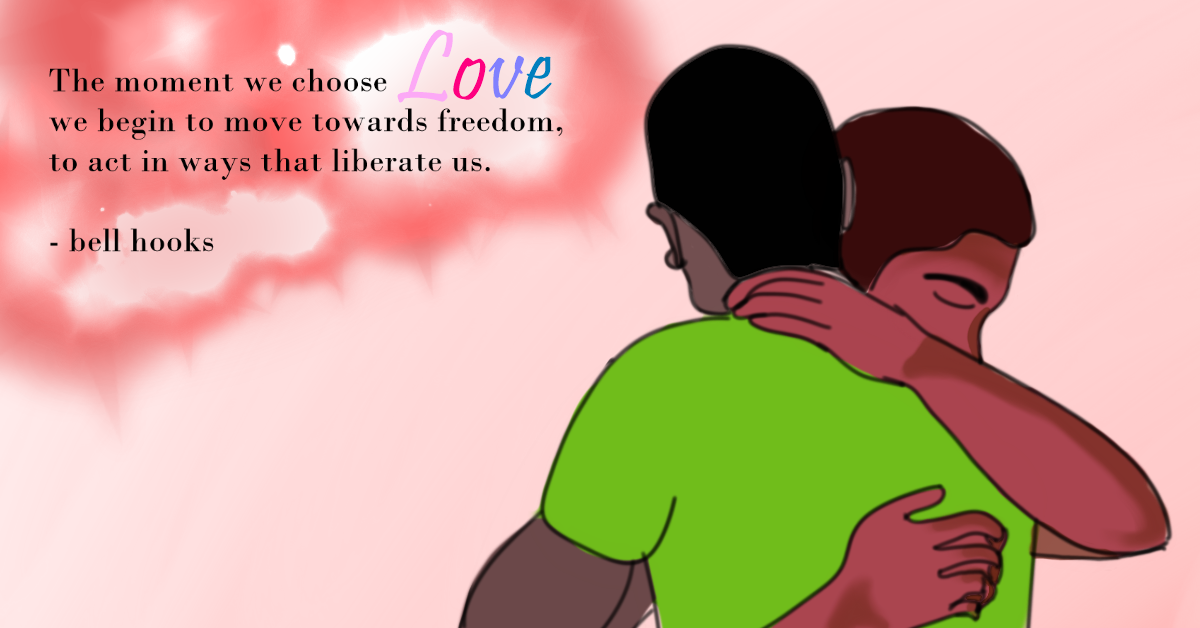Challenging Toxic Masculinity

In the last four months of the COVID-19 physical distancing, like everyone else, I have been consuming LOTS of shows but there are two shows that have really touched my heart and I was trying to figure out why and this is what I’ve come to understand:
Toxic Masculinity is most effectively challenged when it is men who are challenging it
The two shows that I grew to love is Try Guys and Queer Eye: Fab 5. The first is a group of four men: three white men and one gay Asian men. The second is a group of five gay men, one of whom is black, another of South-Asian descent and the other three white men. So this is not your typical ‘male privilege’ demographic, frat guys. However, the white men of Try Guys do represent the privilege among the heterosexual community and the queer men of Queer Eye represent privilege within the Queer community. If we agree with this premise, then both shows have male privilege.
So why do these shows, one a makeover and the other about four guys literally trying ANYTHING matter? Because both shows represent masculinity that is not toxic. The white men of Try Guys wear lipstick and demonstrate fear and sometimes are so “not cool.” For example, two of the guys try out crossfit and they fail pretty miserably. But there is no display of the shame or being “less than” because they weren’t able to perform the masculinity of fitness. Similarly in Queer Eye, the five men often show emotion, tears, hug, cuddle not just with each other, but with the heterosexual men they are interacting with. In fact, one of the men, Karamo, has talked openly about how he had exhibited the toxic masculinity himself and engaged in domestic violence; now he uses his platform to talk against this masculinity.
But for the most bit, these men are not ‘calling out’ masculinity; they are just being themselves and it is this in itself that challenges toxic masculinity. These men are by all account successful which toxic masculinity promises can only happen if you are a certain type of “man”.
Compare that to James Bond – the machoest of man who is a womanizer, doesn’t cry, is buff and athletic. Oh and of course, white. He represented what is meant to be a “man”. These social messages still exist very deeply. Men don’t cry. They are supposed to be confident and cool. Never have doubts. Not be shy. They are surrounded by women and do not have any intimacy, even platonic, with other men.
In a time where aggression is the norm, not just among men but in society in general as you can see with online vitriol, stubborn dogma and aggressive nationalism, it is refreshing to watch people talk about emotions, feelings, laugh, cry and be tough and strong in ways that do not require putting someone else down and denying parts of yourself.
I had a friend who once suggested to me that the programs we were doing with young men around gender-based violence was ineffective because we weren’t allowing them to channel their anger. His suggestion was to engage in boxing or Taekwon-do or some other form of physical activity that channelled violence. And while doing these activities, the young men could be taught about how to channel anger and not demonstrate aggression; that would be an ideal way to talk about and display positive masculinity. He believed that many from a trauma background, as he was, required that. I can’t speak to his experience and I’m sure for some, they need physical outlets. Hell, I was enjoying boxing some six months back when I was going through intense trauma, depression and anger. But I can’t imagine how feeling good about punching a bag would then work well with also listening to positive messages about not exerting aggression. I don’t think you can use violent behaviour to control it for nonviolent action. I think nonviolent or nonaggressive action is based on love, kindness, care, humility, emotion and vulnerability.
That’s the beauty of these shows. They preach every single one of these things for themselves, for each other and for the people they encounter. To be kind. To love. To show emotion and be vulnerable. And that is a beautiful thing to break away from the toxic masculinity and general toxicity that is there in the world today.